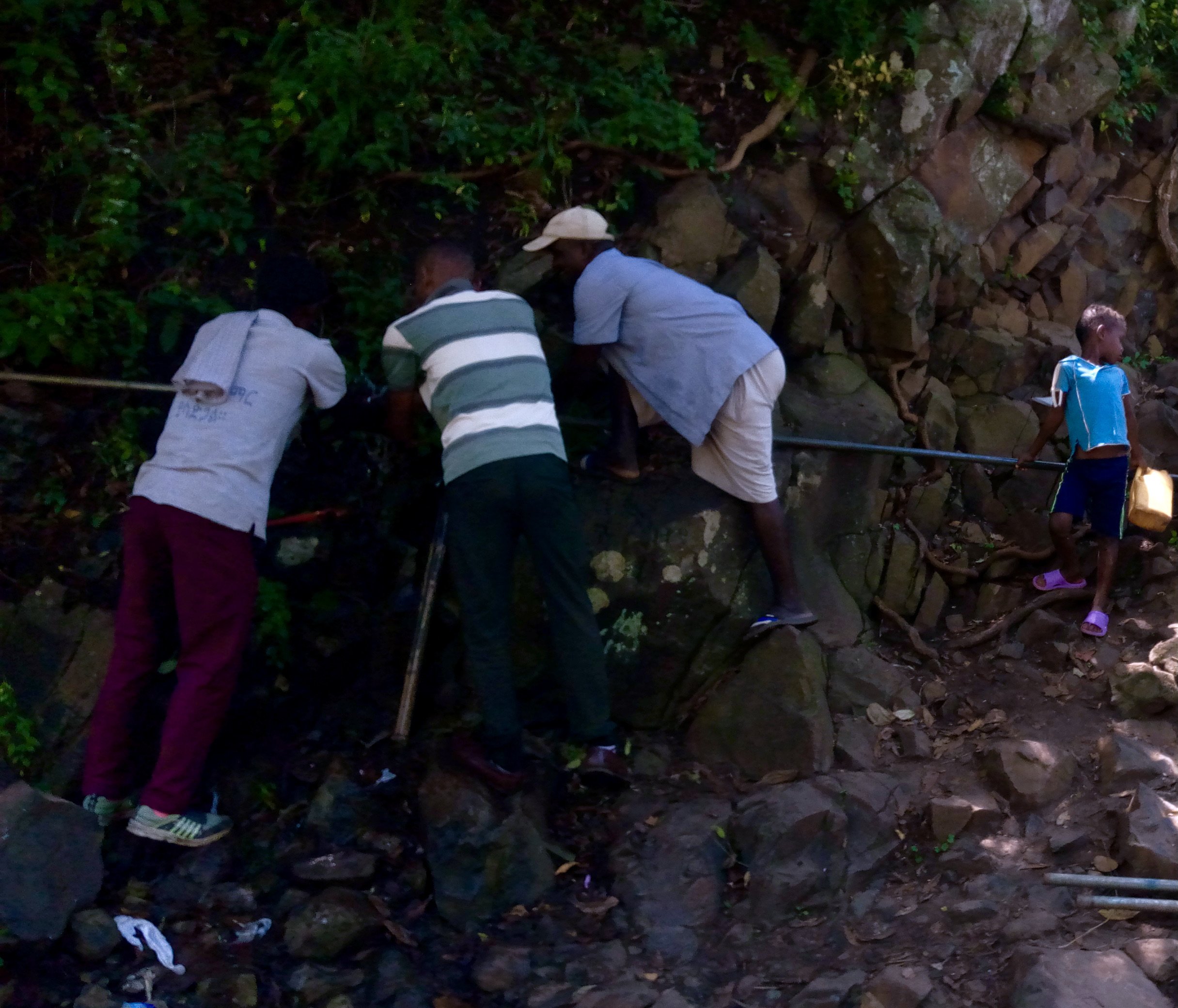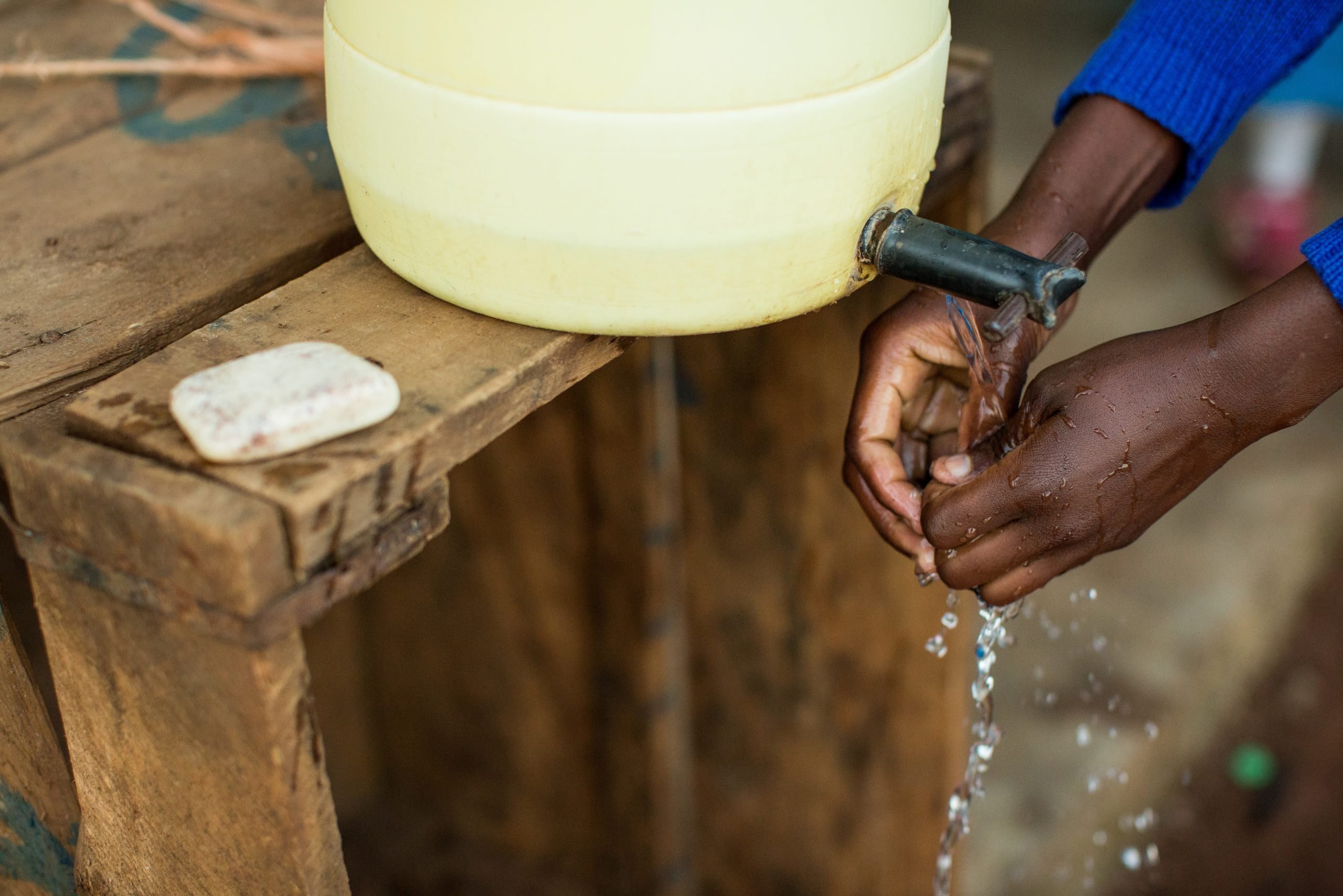Today is world water day, a day set aside to globally recognize the importance of clean water. In Ethiopia, Nuru has been focused on helping the farming communities it serves to improve access to clean water.
In 2020, amid the ongoing COVID-19 pandemic, Nuru Ethiopia successfully repaired and established clean water sources. These water sources are now benefiting 3,550 households (approximately 21,300 people). Clean water is vital to the continued health of Nuru farmer families.
Backstory
In 2016, local water infrastructure artisans, community members and woreda (county) and zonal Water and Mining officials came together to restore access to clean water for more than 1,000 households in Nuru’s target kebeles (towns) in Boreda, Ethiopia. On that day, a 100,000-liter tanker, which had been empty for eight years, began to fill. Community members cheered at the sight of clean water flowing out of water sources that hadn’t worked since 2011.
Nuru set the stage for this incredible moment by delivering training focused on Nuru’s servant leadership principles and their connection with water sustainability. Beginning with the main bono (source spring) in Gurame Wolko kebele and continuing on throughout the remaining six kebeles, water committee artisans, community members, and Boreda Water and Mining experts, all guided by Zonal trainers, immersed themselves in learning how to repair or improve a variety of water sources. Community members applied their knowledge of their community to help artisans find locations of breaks in the water lines and assisted in the digging up of water lines.
Progress
From spring 2017-spring 2018, Nuru continued building on this initial impact on community access to clean water by increasing the number of kebeles with repaired and improved water sources. Nuru trained 50 water committee members and 35 artisans to maintain their kebeles’ water sources. This equipped them to fully and successfully manage the repair of eight additional water sources.
Now, water sources across several communities, are flowing with clean, treated water. Nuru equipped local leaders with the knowledge and ability to maintain and repair a wide variety of water sources. Furthermore, they have nurtured a relationship with local government officials. This helps to ensure that these improvements will be maintained and sustained for the long term.
2020 Progress in the Face of COVID-19
In 2020, Nuru Ethiopia began work to repair water sources in a third woreda, Zala. These are the newest communities where Nuru is now working with farmers and their families.
As COVID-19 began to wreak havoc around the globe and caused many organizations to stop operations altogether, Nuru remained undaunted. Nuru continued in its efforts to improve these water sources and help these new communities improve their lives and livelihoods.

Water source repair in Ethiopia
In 2020, Nuru trained an additional 50 water committee members and 48 artisans from ten kebeles. Nuru trained members and artisans to repair, maintain, and improve local water sources. Nuru staff and local government agencies, including three experts from the Gofa Zone of Ethiopia, support training. The training took place over a period of eight days with three days of classroom training and five days of fieldwork and repairs. The fieldwork and hands-on training took place in several kebeles in Zala Woreda. The classroom training took place in the Shafe Town Administration Hall.
The Impact
Amid a global pandemic, when the need for proper sanitization and good hygiene is increasingly important, clean water sources are vital to the health of these communities.
Ashike, a community member from Shambara kebele said, “Before this water source was established, women and children from our community would travel for more than an hour to get water for drinking (mostly from unprotected springs and rivers). This left us prone to water-borne and water-related disease. Then, we needed to spend money for medical expenses when we got sick from this water. Now, for most households in the water-maintained kebeles, it takes on average less than 30 minutes to get safe water for drinking and other daily use. Now, we will have time to invest in other activities and save money we had to use previously for different medical problems arising from using unsafe water.”
Worzamo, an artisan from Genda kebele who received the training, said, “Water is life. I am very glad to be trained and well-equipped [on] how to maintain water sources from springs to pipes and reservoirs. I am lucky for being an artisan helping to provide life (water). From this training, I can help maintain safe, clean water for my community.”


